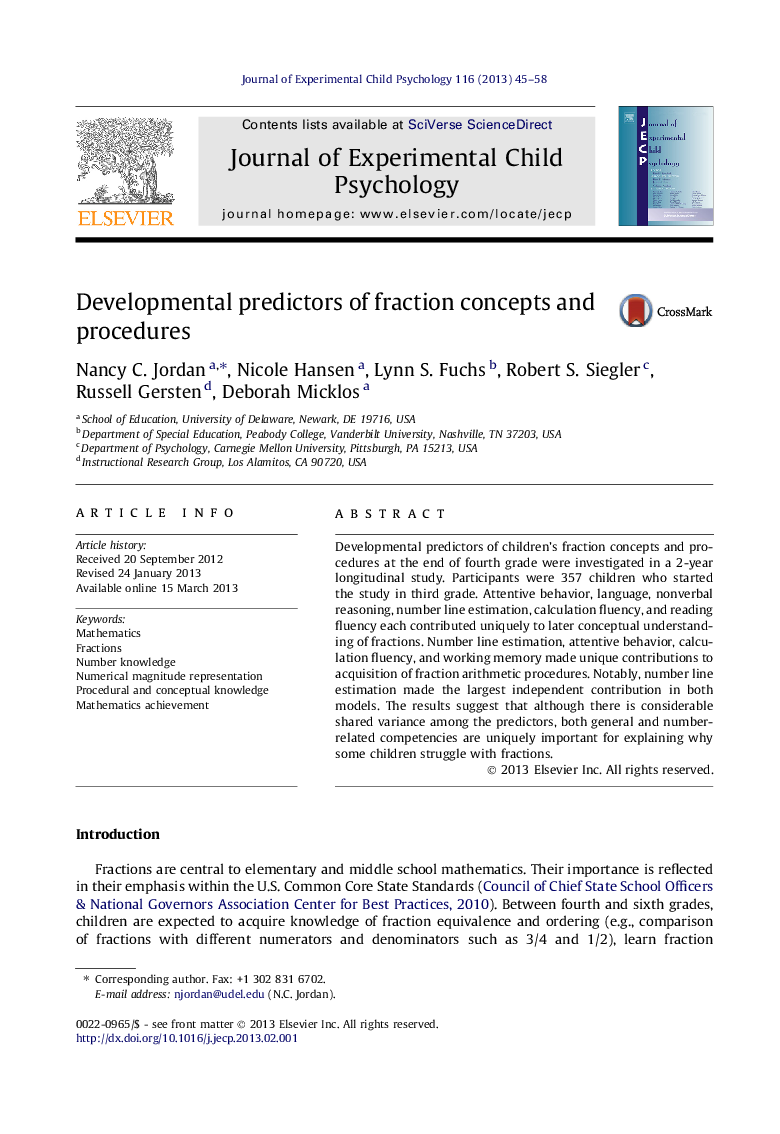| Article ID | Journal | Published Year | Pages | File Type |
|---|---|---|---|---|
| 918088 | Journal of Experimental Child Psychology | 2013 | 14 Pages |
Developmental predictors of children’s fraction concepts and procedures at the end of fourth grade were investigated in a 2-year longitudinal study. Participants were 357 children who started the study in third grade. Attentive behavior, language, nonverbal reasoning, number line estimation, calculation fluency, and reading fluency each contributed uniquely to later conceptual understanding of fractions. Number line estimation, attentive behavior, calculation fluency, and working memory made unique contributions to acquisition of fraction arithmetic procedures. Notably, number line estimation made the largest independent contribution in both models. The results suggest that although there is considerable shared variance among the predictors, both general and number-related competencies are uniquely important for explaining why some children struggle with fractions.
► Number line estimation, prior math achievement, language, and attentive behavior uniquely predicted fraction concepts. ► Number line estimation, prior math achievement, and working memory made unique contributions to acquisition of fraction procedures. ► Both domain specific and domain general competencies are important for explaining why some children struggle with fractions.
